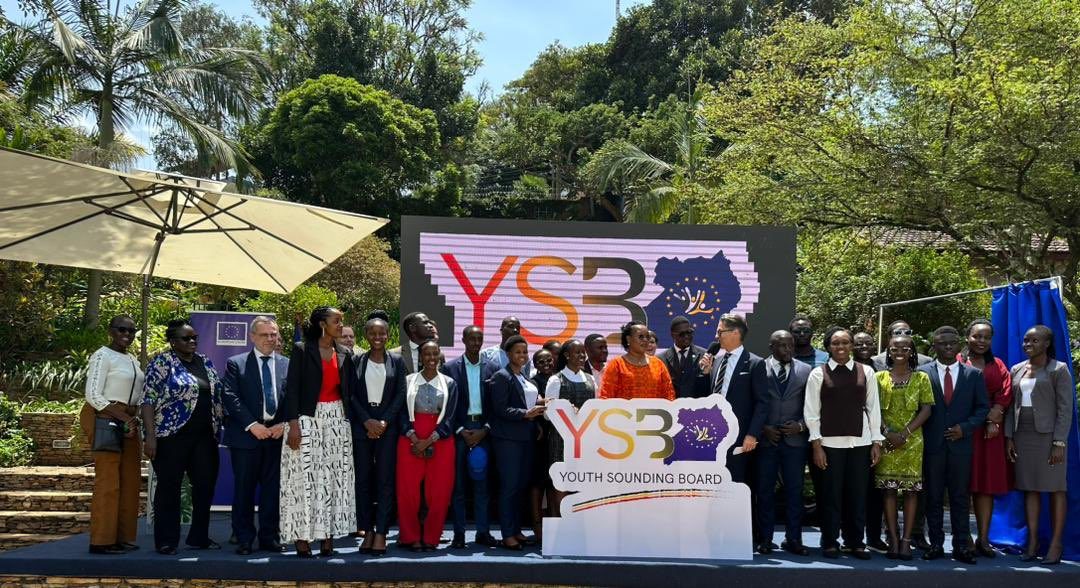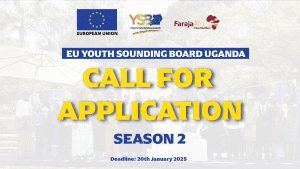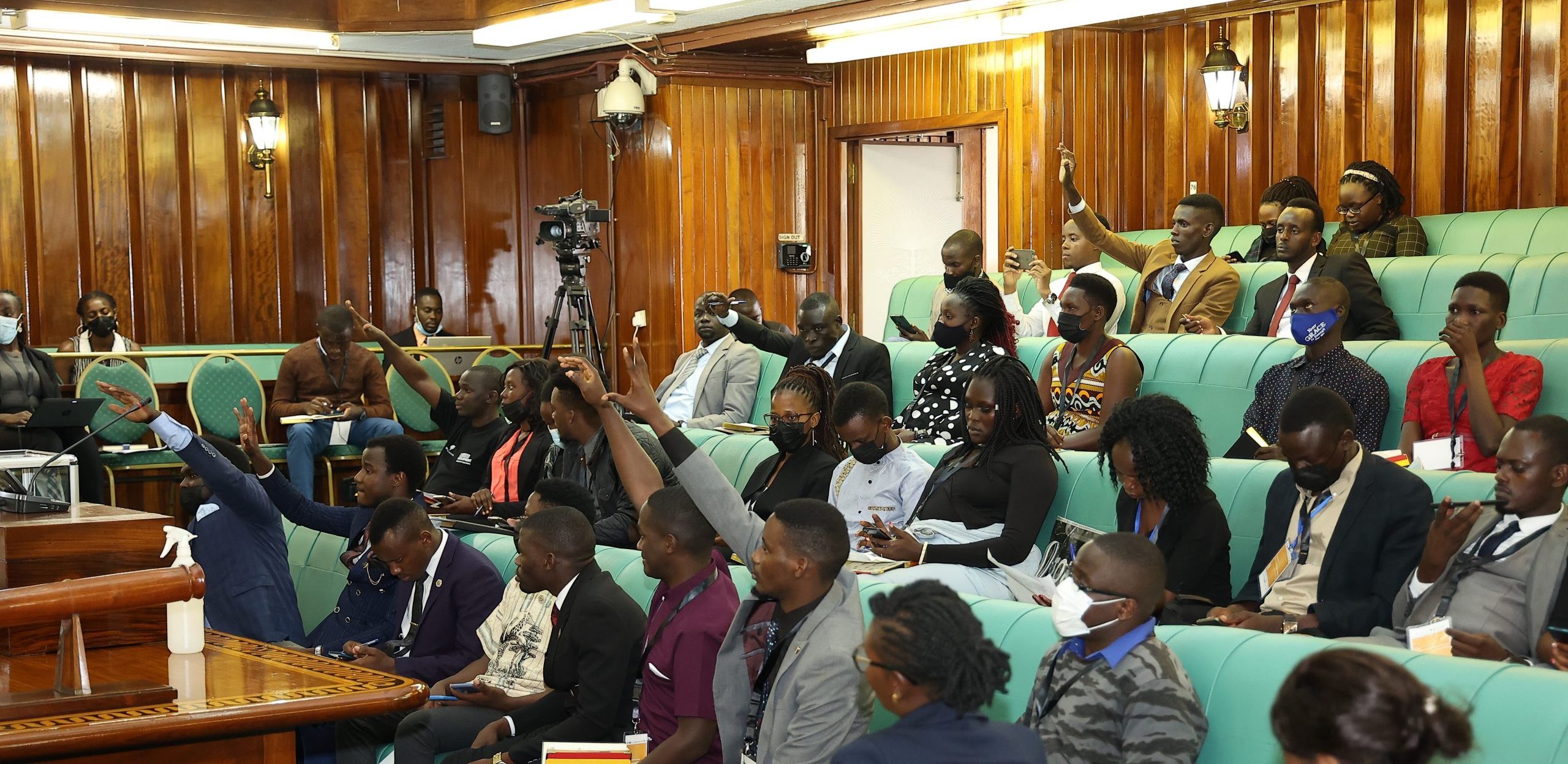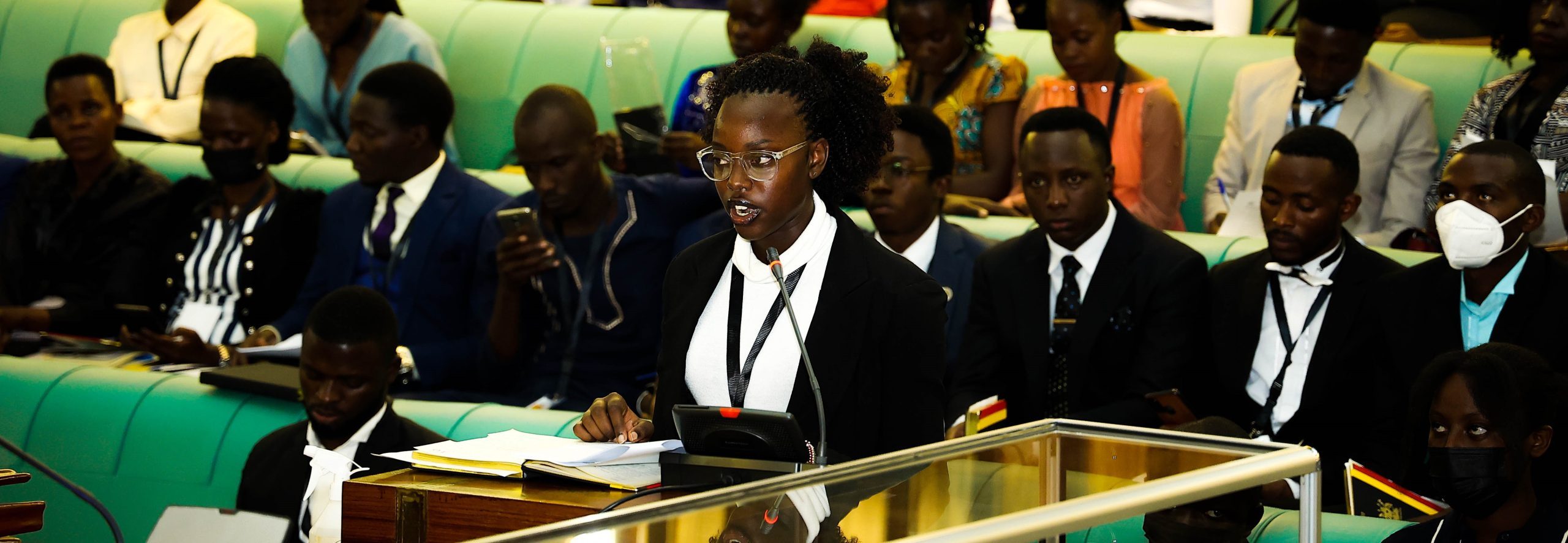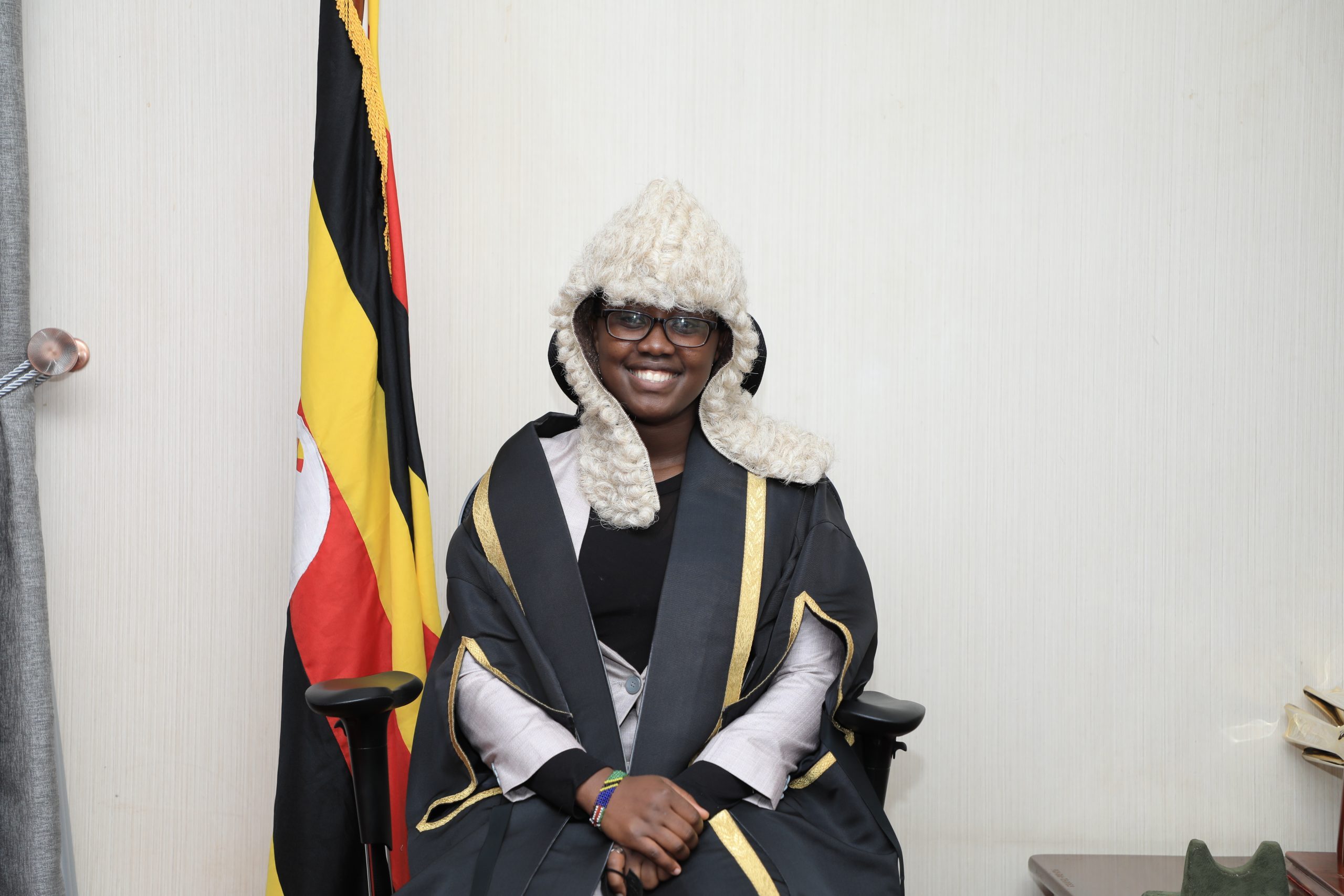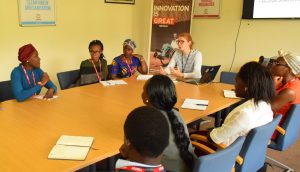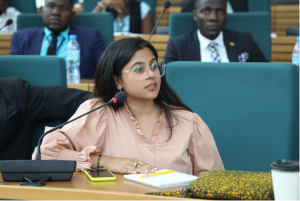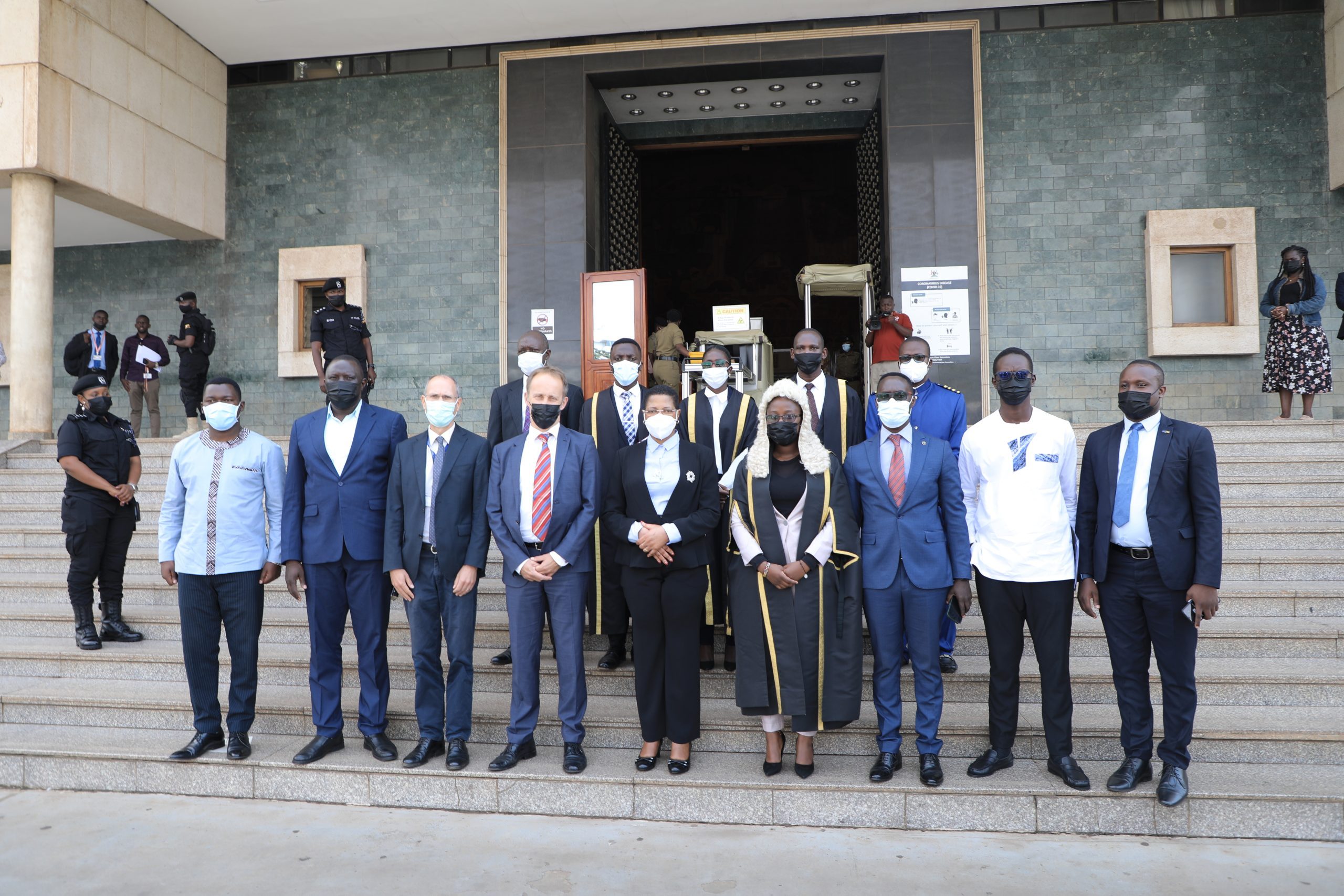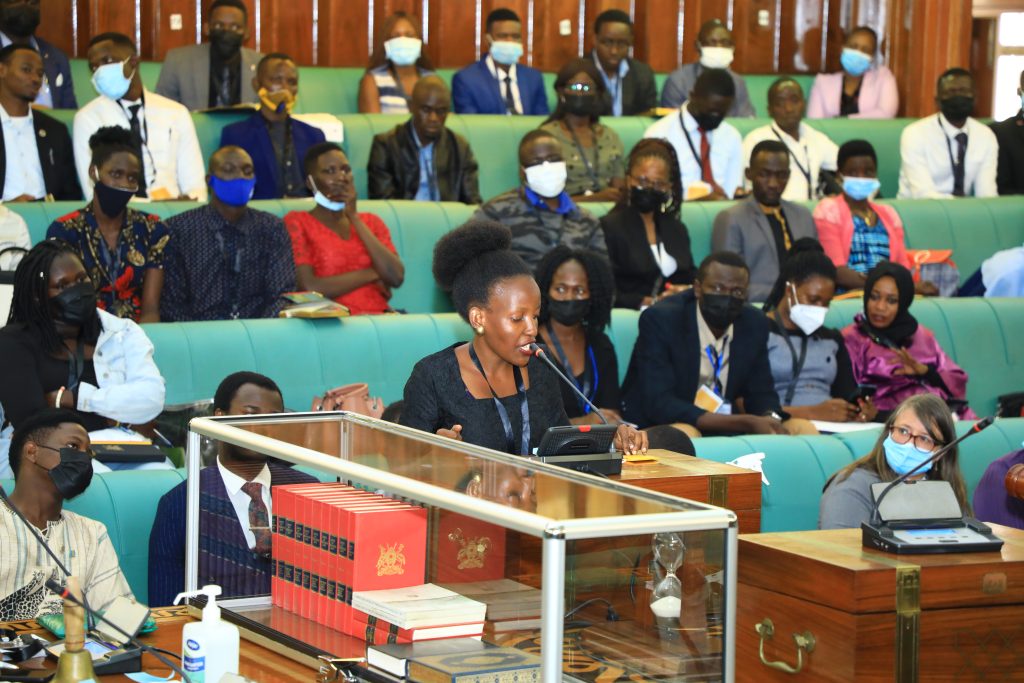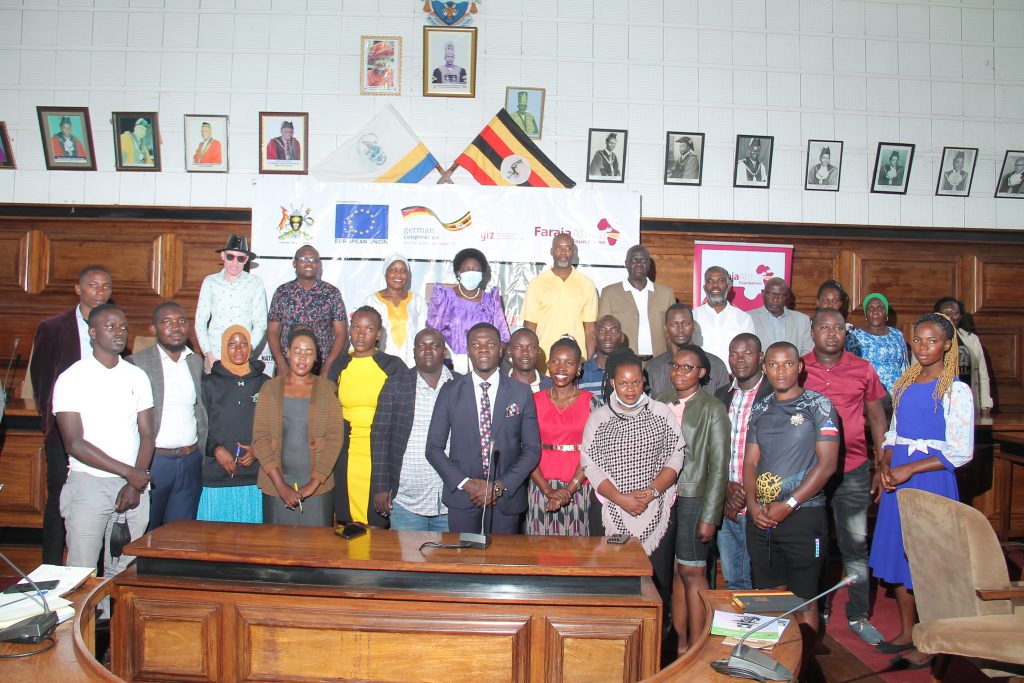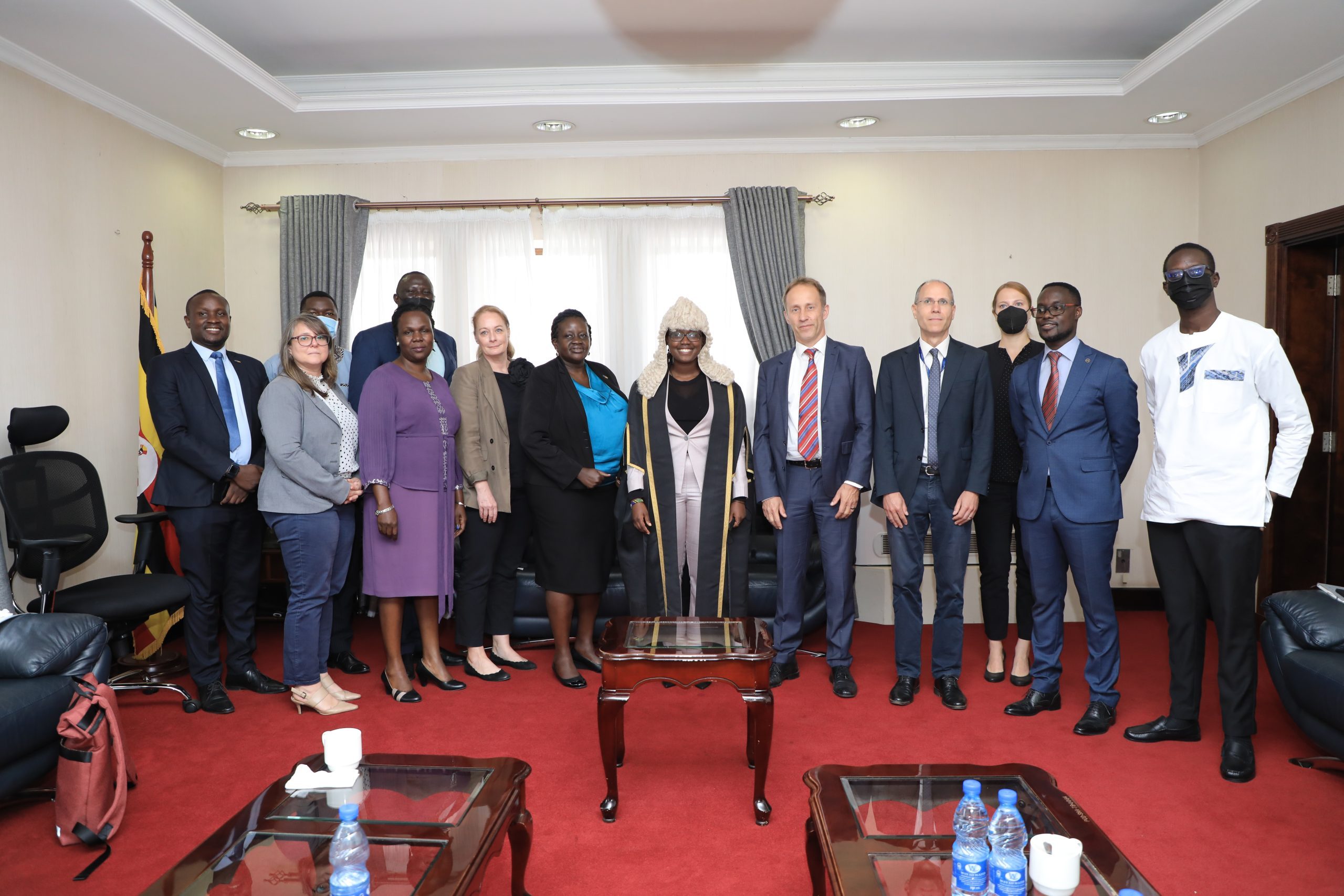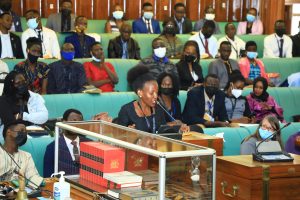 On April 24, 2025, I was invited as a panelist to the 2nd Guild Leaders’ Summit at Makerere University, hosted by the Guild Leaders Academy. The theme, “Leaders with Integrity: Building Foundations for Good Governance in East Africa,” was a powerful reminder that we, as young people, hold the key to transforming our region. The summit brought together passionate student leaders from across the East African Community with several key government stakeholders from Uganda, Kenya, and Tanzania, including H.E. Uhuru Muigai Kenyatta, H.E. Jessica Alupo, former Prime Minister, Rt. Hon. Ruhakana Rugunda, Justice Simon Byabakama, Hon. Mathew Rukikaire, and European Union Deputy Ambassador Mr. Guillaume Chartrain, among others.
On April 24, 2025, I was invited as a panelist to the 2nd Guild Leaders’ Summit at Makerere University, hosted by the Guild Leaders Academy. The theme, “Leaders with Integrity: Building Foundations for Good Governance in East Africa,” was a powerful reminder that we, as young people, hold the key to transforming our region. The summit brought together passionate student leaders from across the East African Community with several key government stakeholders from Uganda, Kenya, and Tanzania, including H.E. Uhuru Muigai Kenyatta, H.E. Jessica Alupo, former Prime Minister, Rt. Hon. Ruhakana Rugunda, Justice Simon Byabakama, Hon. Mathew Rukikaire, and European Union Deputy Ambassador Mr. Guillaume Chartrain, among others.
During the summit, several critical topics were discussed, including:
- Institutional Accountability: The Backbone of Good Governance
- Youth Participation in Governance: Transforming Vision into Action
- Youth and Elections: Ensuring Participation and Accountability for a Democratic Future
The theme that echoed louder than any other was “Youth Participation in Democratic Governance”. Across many countries, constitutional reforms have opened the door for youth and women to claim space in leadership, from youth councils to affirmative seats in parliament. These are critical wins. But the deeper question remains: Are these pathways truly equitable? Are our electoral systems fair and inclusive, or do structural barriers still keep us from real power?
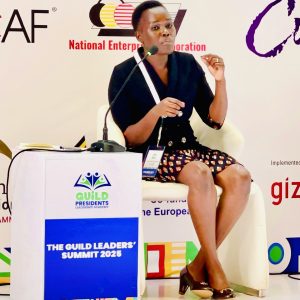
While speaking on the second panel, I paused a series of important questions to fellow young people: How do we boldly step into leadership and drive the kind of change our societies desperately need? How do we harness the platforms and privileges we now have to shape a future grounded in justice, integrity, and accountability?
I addressed head-on the barriers that continue to silence and sideline young voices, including tokenism, the exorbitant cost of running for office, and the pervasive threat of sexual violence in politics. These are not abstract challenges, they are lived realities that limit our access to power and corrupt the promise of democracy. As such, I called for urgent electoral reforms, pushing for policies that cap campaign spending, ensuring the political playing field is open to all and not just the privileged few. We must confront the uncomfortable truths that too often go unspoken. Tokenism, sexual violence in politics, and the prohibitive cost of running for office continue to block young people from stepping into leadership. These barriers don’t just limit our participation, they erode the integrity of democracy itself, weakening the foundations of genuine representation and accountability.”
“We cannot continue to let short-term handouts dictate long-term leadership. It’s time to elect leaders with vision, integrity and the courage to enact policies that uplift and transform our nations.”
Vicky Namugobe, 7th Speaker of the National Youth Parliament
On the growing menace of sexual violence in political spaces, I said, “We must not remain silent. As the next generation of leaders, we must be unwavering in our stand against exploitation in all its forms. Stronger laws must be enacted and enforced to protect those most vulnerable and to ensure our political spaces are safe, inclusive, and just for everyone.”
To every young changemaker listening or reading this: The time is now. We can no longer afford to sit back and wait for the perfect moment to act. Whether your path is in politics, civil society, entrepreneurship, or advocacy, the opportunity to make a difference is already in your hands. The future belongs to us, but only if we claim it.
The summit concluded with the Kampala Declaration, a bold call to action from the guild leaders across East Africa to prioritise.
- Advancing gender-sensitive policies that empower women and girls to effectively participate in decision-making processes.
- Strengthening civic engagement to ensure active youth participation in governance
- Championing environmentally sustainable development.
- Improving cross-border infrastructure to support trade and integration.
As we reflect on the outcomes of the summit, I leave you with the powerful words of two leaders:
“Leadership can take many forms—not only through elective or public office. As one aspires to leadership positions, they must remember that every decision made today will shape the future for generations to come.”
Mr. Guillaume Chartrain, EU Deputy Ambassador
“Leadership with integrity is a journey, an ongoing responsibility. It does not begin with a title, nor does it end with applause. It is defined by what it builds and what it leaves behind.”
Justice Simon Byabakama, Chairperson, Electoral Commission
These words capture the essence of true leadership: one that is principled, people-centered, and enduring. Let us not wait for change. Let us be the change.
Namugobe Vicky
7th Speaker, National Youth Parliament
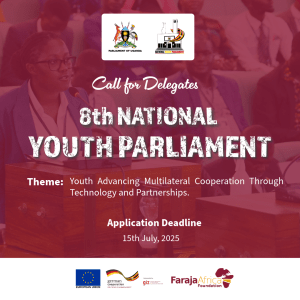









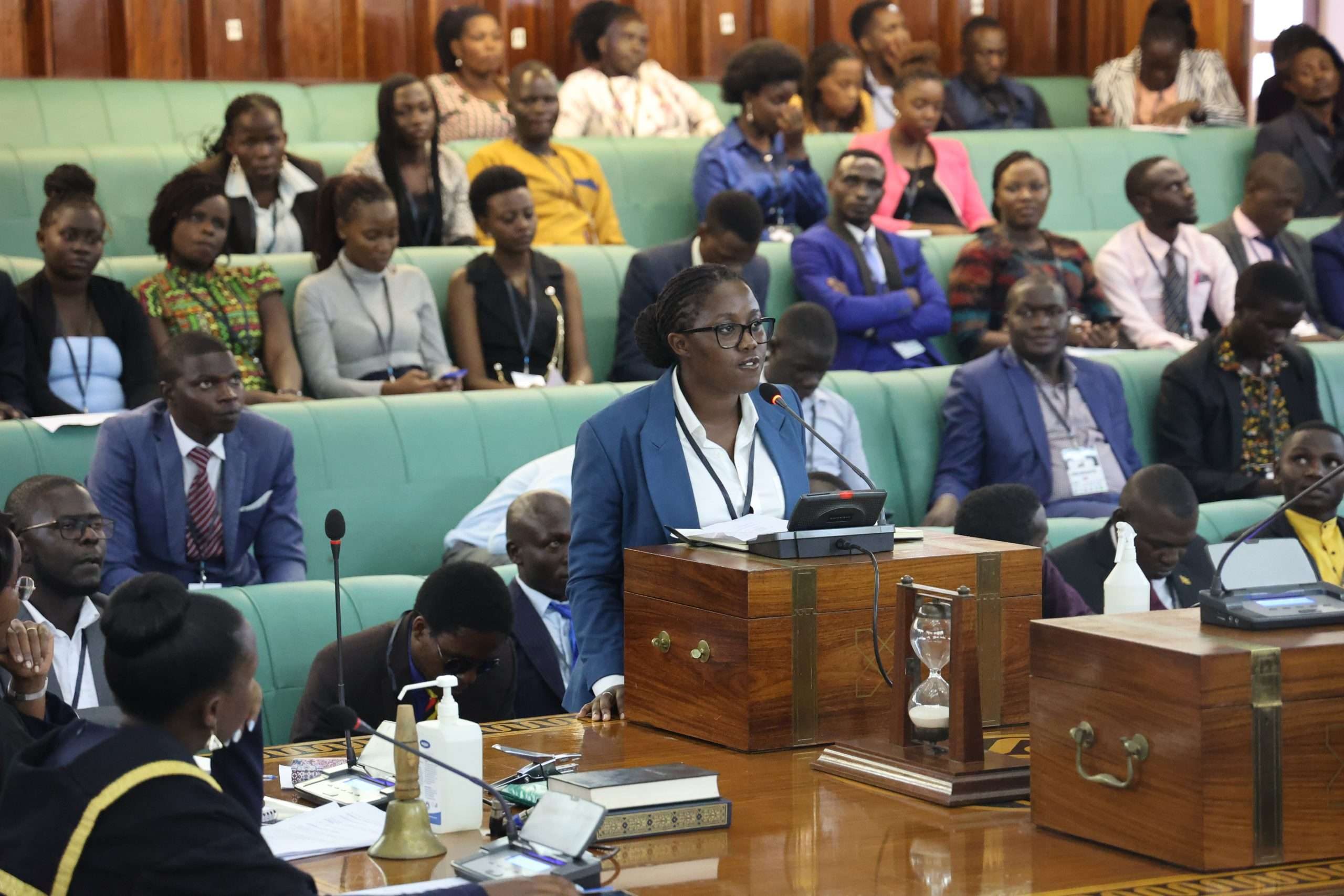

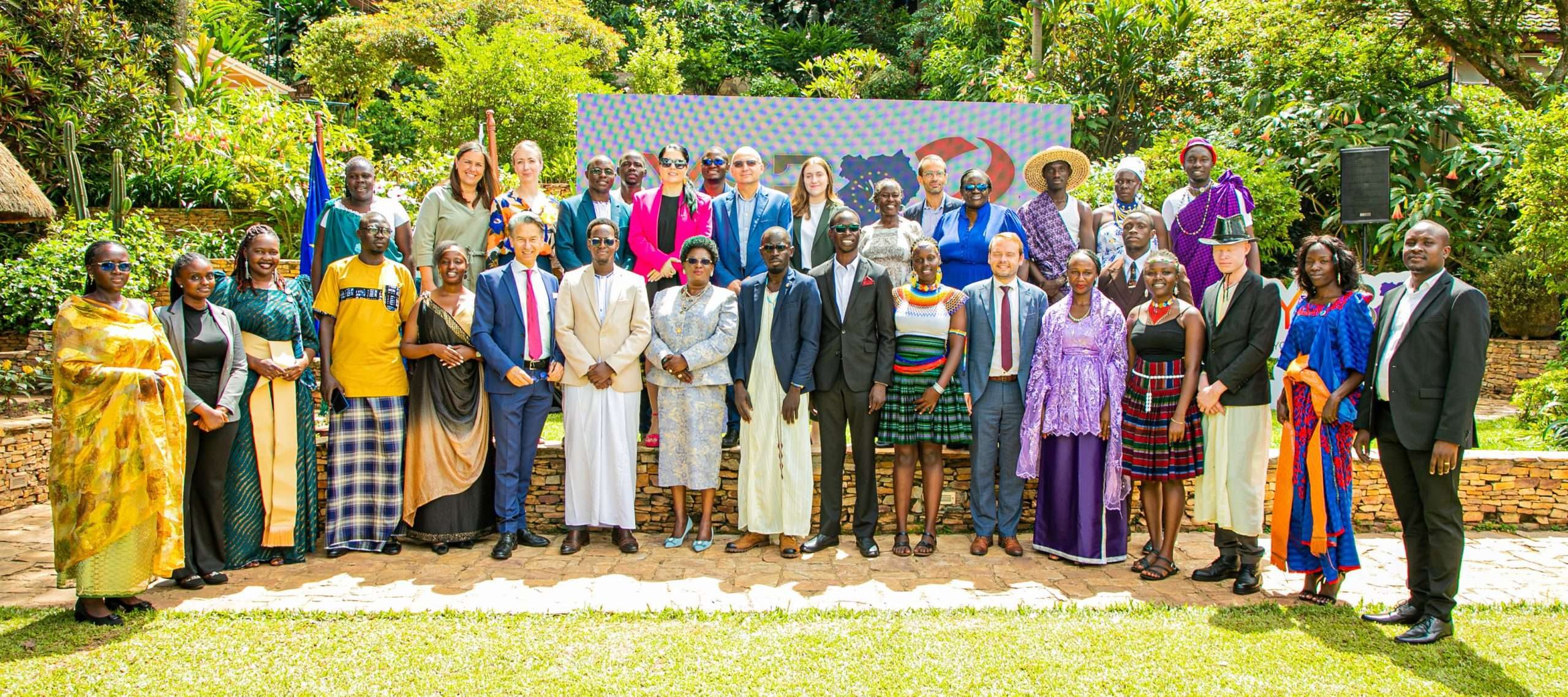
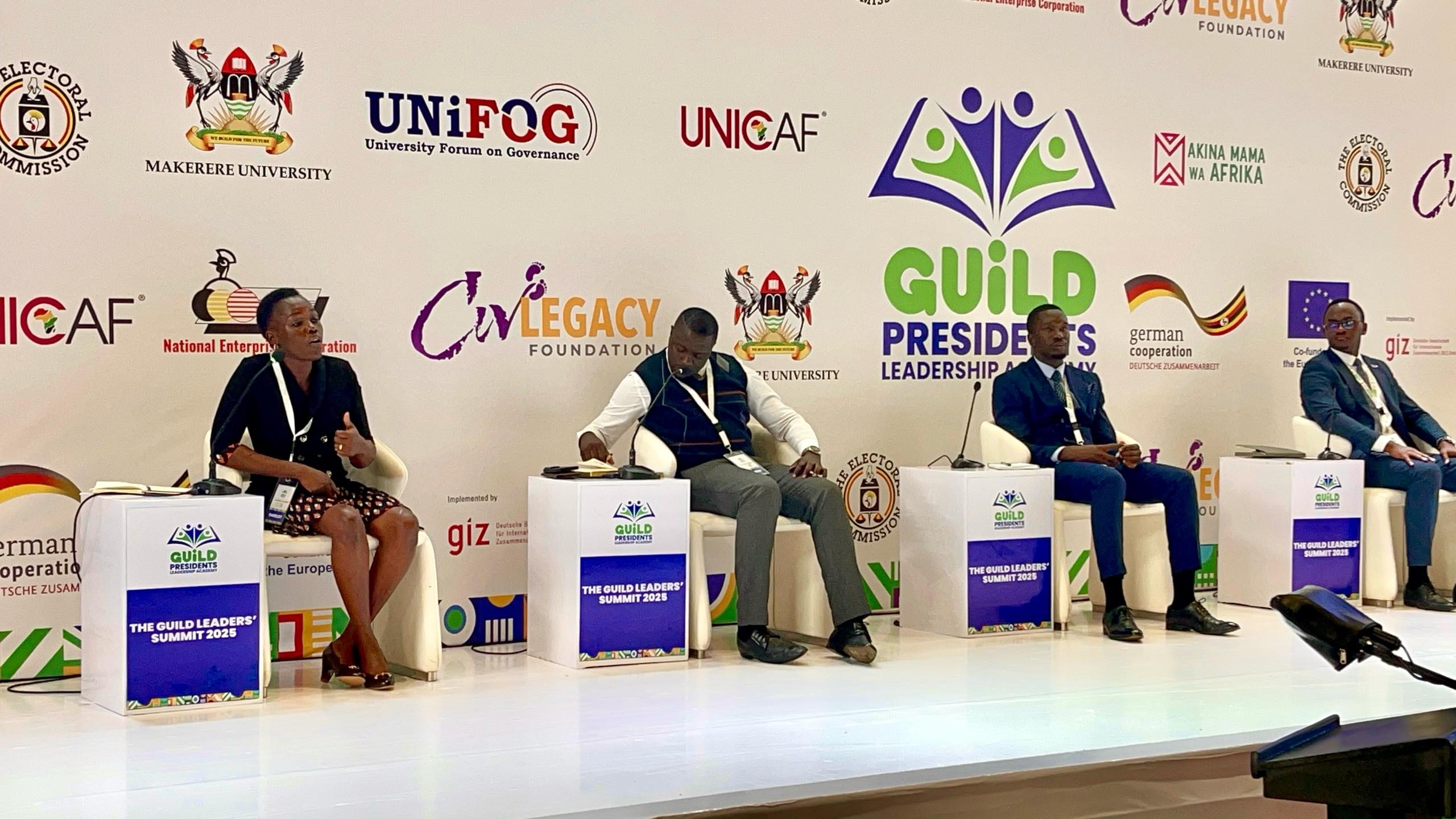
 On April 24, 2025, I was invited as a panelist to the 2nd Guild Leaders’ Summit at Makerere University, hosted by the Guild Leaders Academy. The theme, “Leaders with Integrity: Building Foundations for Good Governance in East Africa,” was a powerful reminder that we, as young people, hold the key to transforming our region. The summit brought together passionate student leaders from across the East African Community with several key government stakeholders from Uganda, Kenya, and Tanzania, including H.E. Uhuru Muigai Kenyatta, H.E. Jessica Alupo, former Prime Minister, Rt. Hon. Ruhakana Rugunda, Justice Simon Byabakama, Hon. Mathew Rukikaire, and European Union Deputy Ambassador Mr. Guillaume Chartrain, among others.
On April 24, 2025, I was invited as a panelist to the 2nd Guild Leaders’ Summit at Makerere University, hosted by the Guild Leaders Academy. The theme, “Leaders with Integrity: Building Foundations for Good Governance in East Africa,” was a powerful reminder that we, as young people, hold the key to transforming our region. The summit brought together passionate student leaders from across the East African Community with several key government stakeholders from Uganda, Kenya, and Tanzania, including H.E. Uhuru Muigai Kenyatta, H.E. Jessica Alupo, former Prime Minister, Rt. Hon. Ruhakana Rugunda, Justice Simon Byabakama, Hon. Mathew Rukikaire, and European Union Deputy Ambassador Mr. Guillaume Chartrain, among others.
